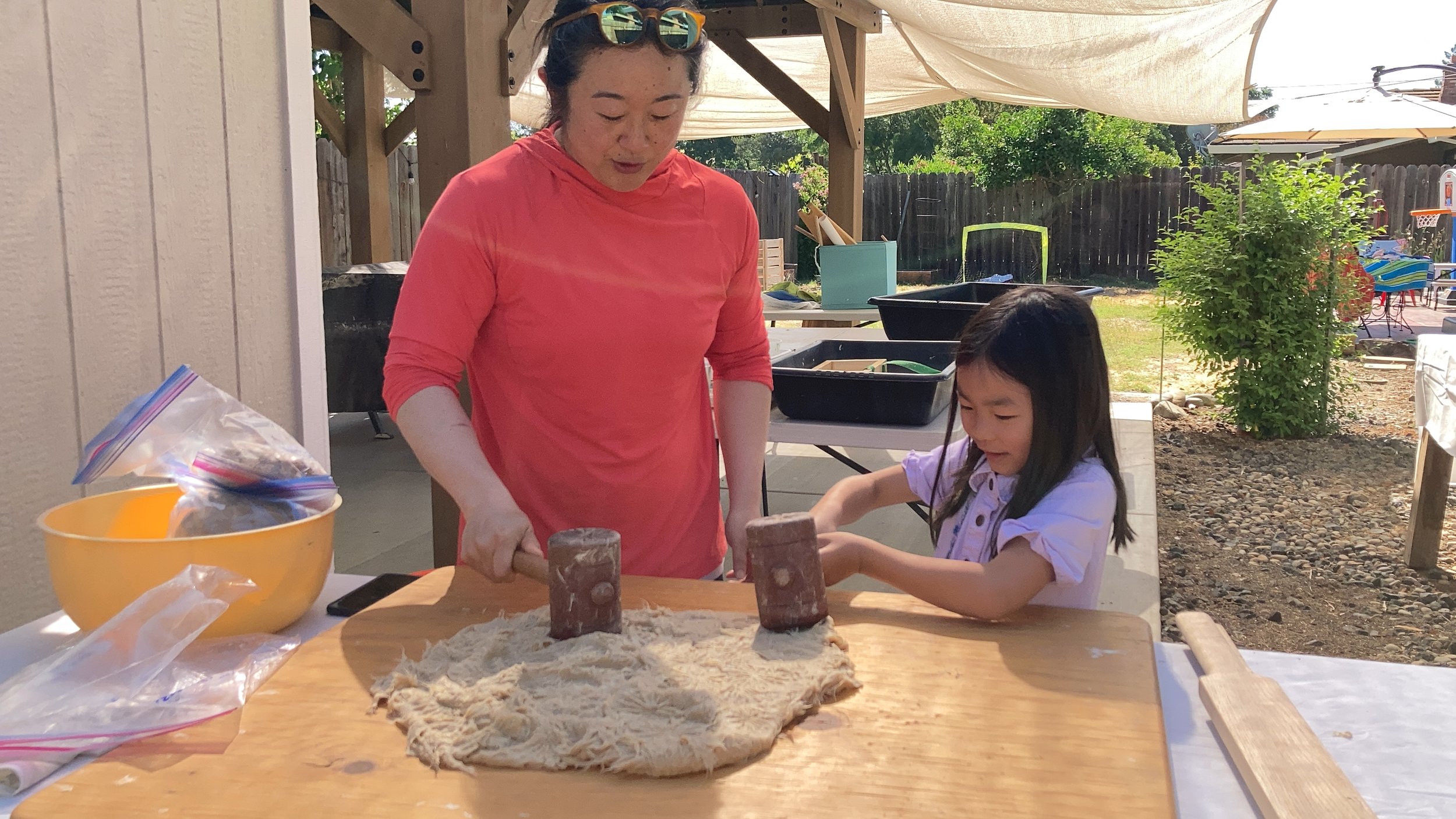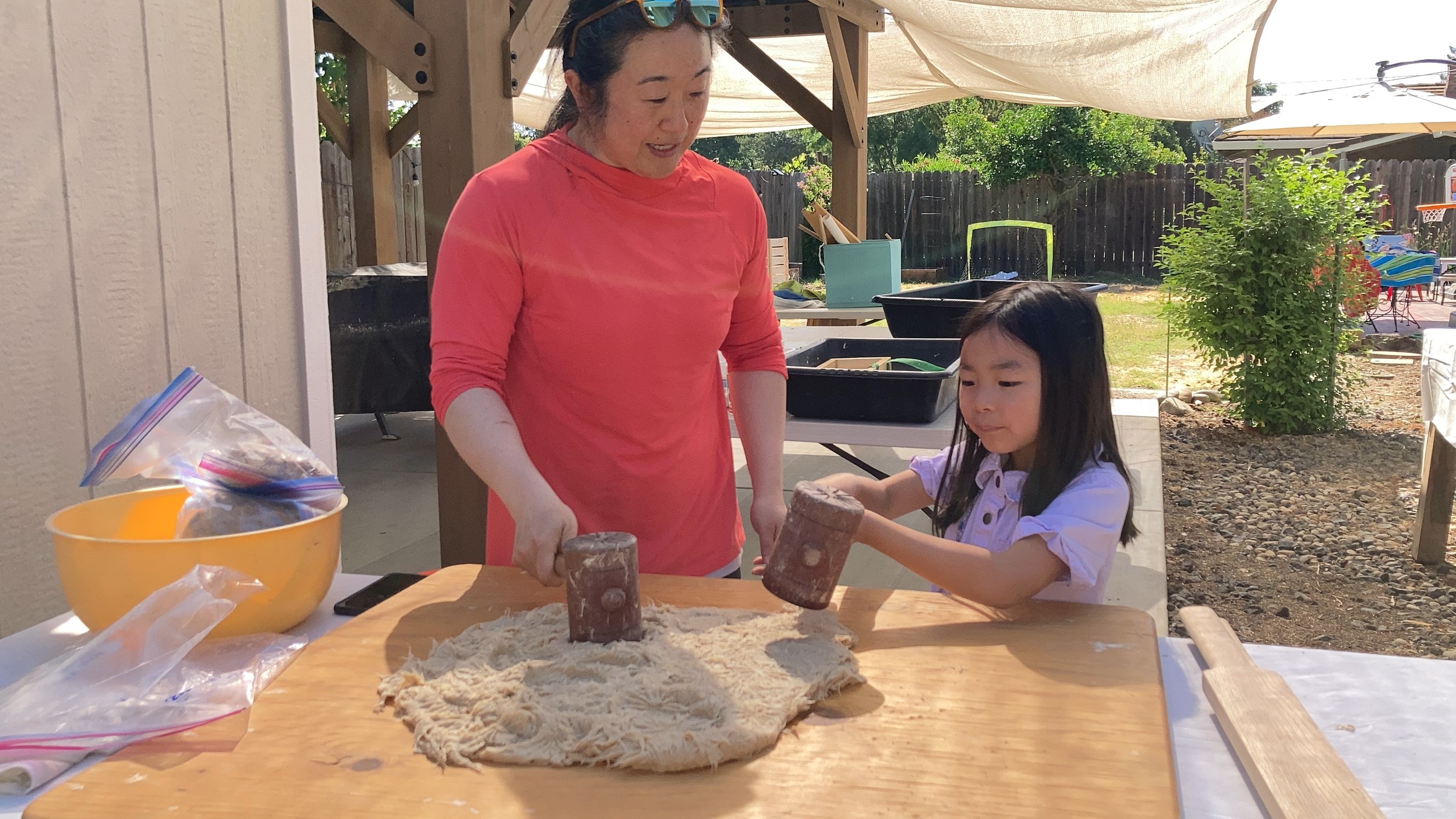I have a friend named Deb who is a physician and doesn’t have to go in to work on Thursdays. She is one of my only Korean American friends in Sacramento. Over the past few years, she has come out to help pretty much every time I set up to make hanji (which typically only happens once or twice a year). At this point she has pretty much performed every step of the process - she has assembled my hanji vat, stirred the vat, beaten dak for hours, plus plenty of other tasks. She claims she knows nothing about papermaking but she knows far more than the average person. So much of “knowing about papermaking” frankly is doing a whole lot of repetitive, manual labor.
Deb is an ideal helper in that she genuinely enjoys the work. I asked her recently if she thinks she would still come out to help if I were doing some other form of labor-intensive craft, even Western-style papermaking. She thought about it and after a while, said nope - somehow what is compelling for her is that I am making Korean paper, that there is a connection to our shared heritage. Her answer made sense to me too, and probably explains why I too do all of this work to make Korean paper.
Winnie loves when Deb 이모 comes over but I also have to explain to Winnie that Deb 이모 is here to work, and that she could maybe play during lunchtime. I love how Deb plays with my daughter and includes her in the work. There is a natural ease and connection among friendship, family, community, and work, that I hope makes a strong positive impression on Winnie. I hope she remembers how friends and community folks would show up and laugh and work hard and chat and take breaks together, and that this is totally normal.
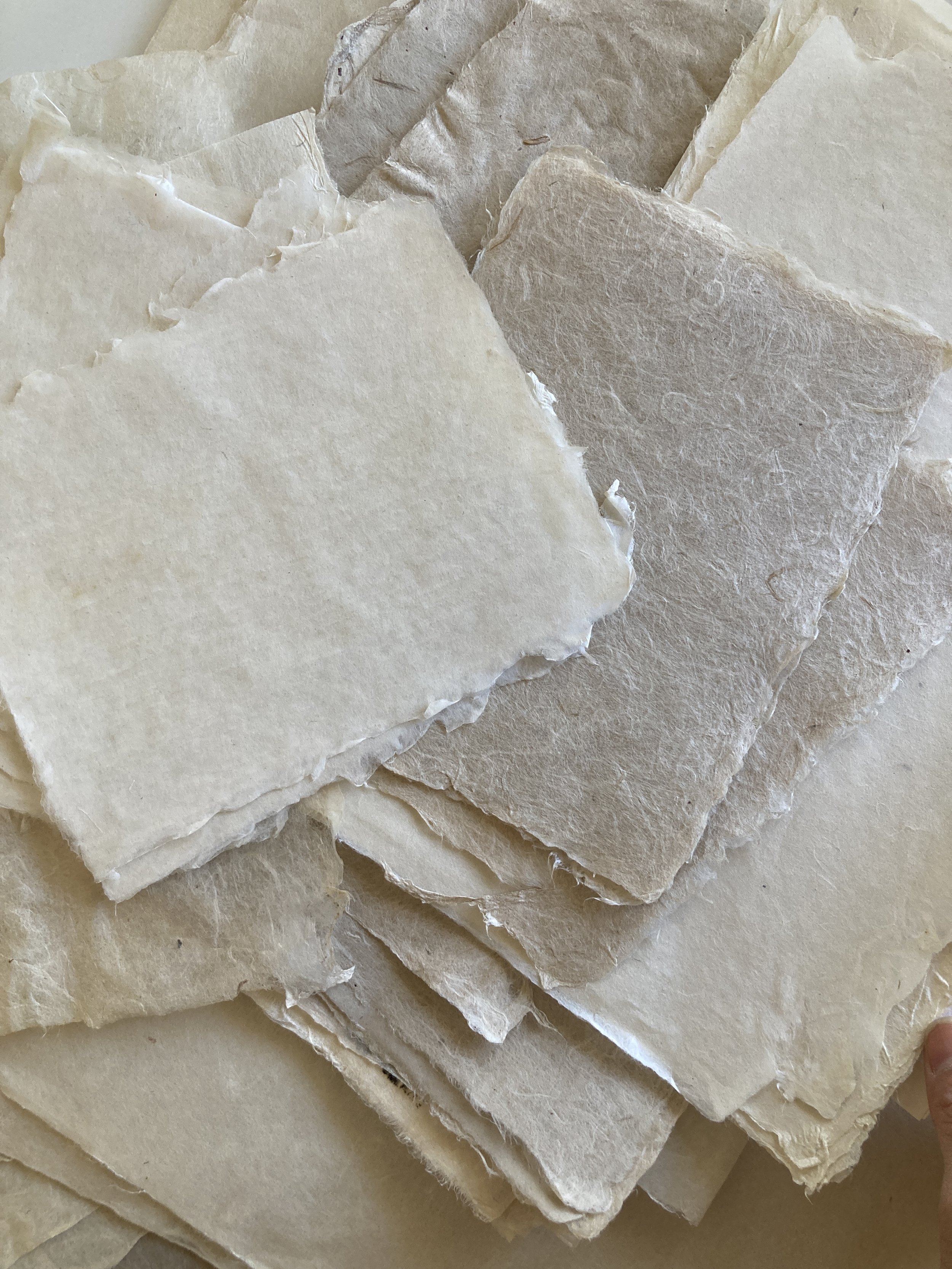
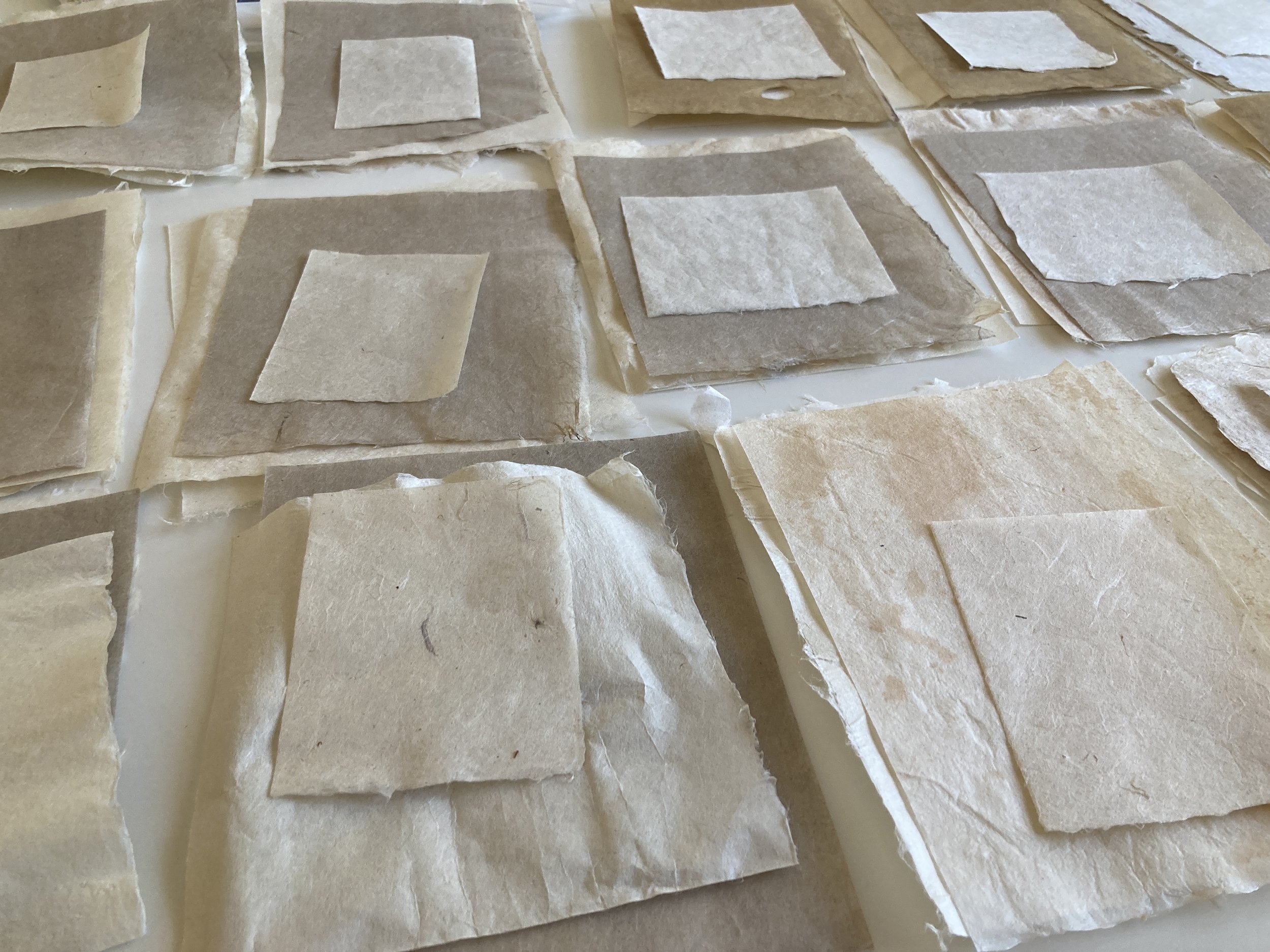
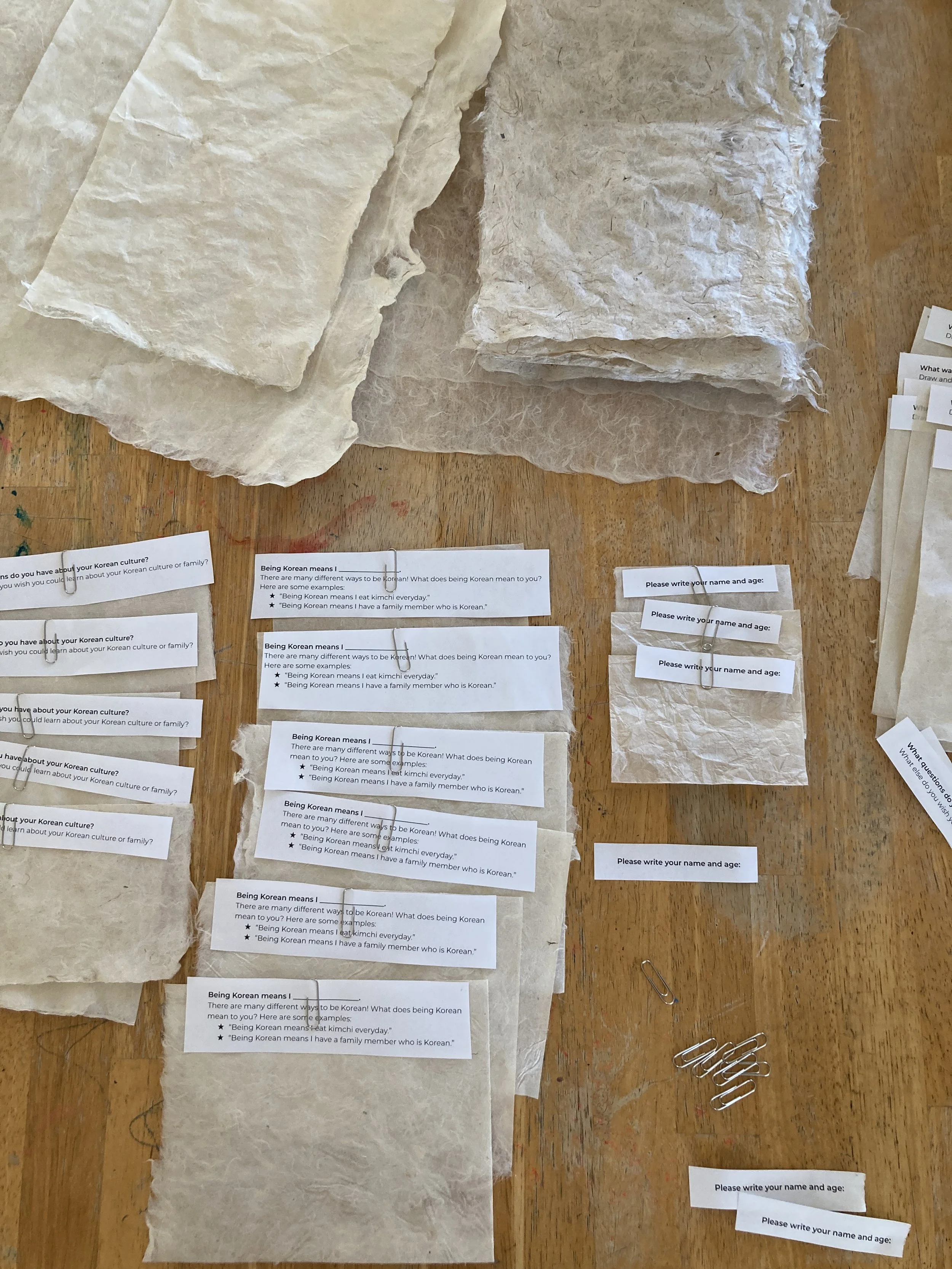
Aside from all of the physical work of preparing for the first hanji workshop (preparing fiber and other raw materials, setting up the outdoor studio space, cleaning, etc) there has also been a lot of thought and consideration into how to best facilitate the short time that we have together (the workshop is only 3 hours long). I worked with my mom (“Mimi”) to translate a survey that I am having all participants fill in during the workshop. While meeting with Mimi, I wondered aloud how she would answer questions like “How would you describe your relationship to your Korean heritage in one word?” Secretly I wonder how my parents feel about this work that I am doing with the Korean American community, and hope that it would bridge some gaps between me and my parents and family.
I wasn’t sure where participants should write their survey responses and wanted to incorporate hanji somehow. In the end, I decided to have participants write their responses on leftover hanji, which feels like an appropriate material for holding words and drawings, however unformed and messy.
